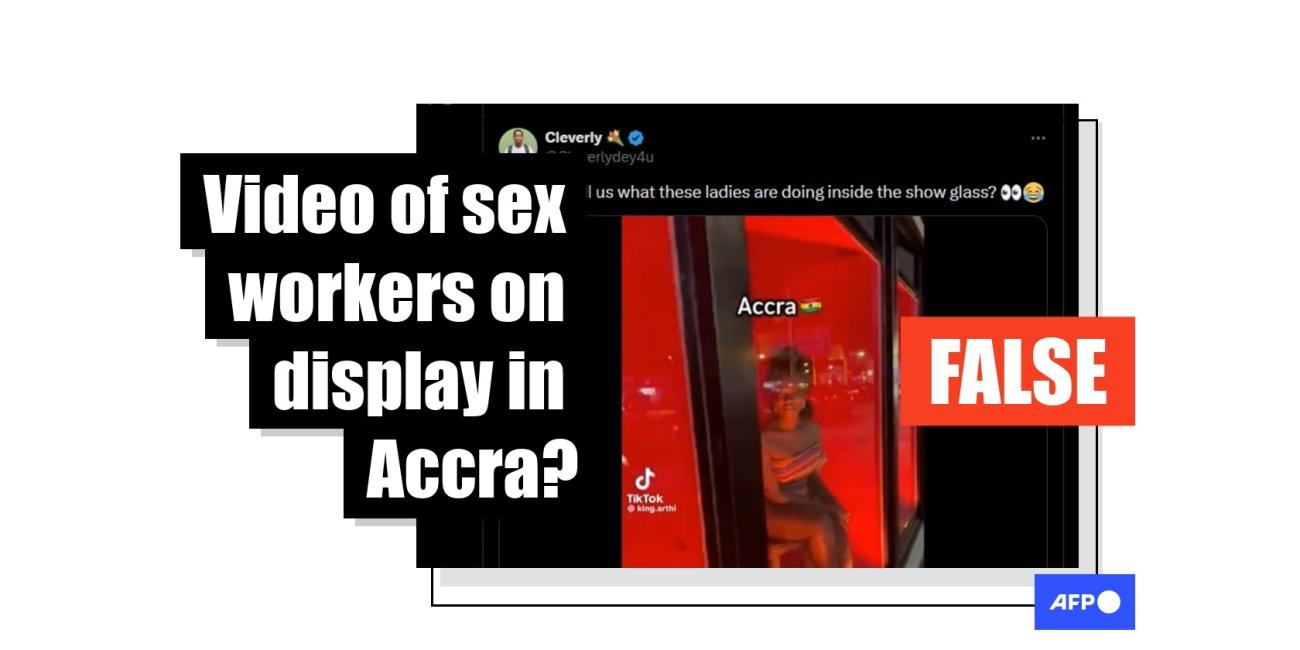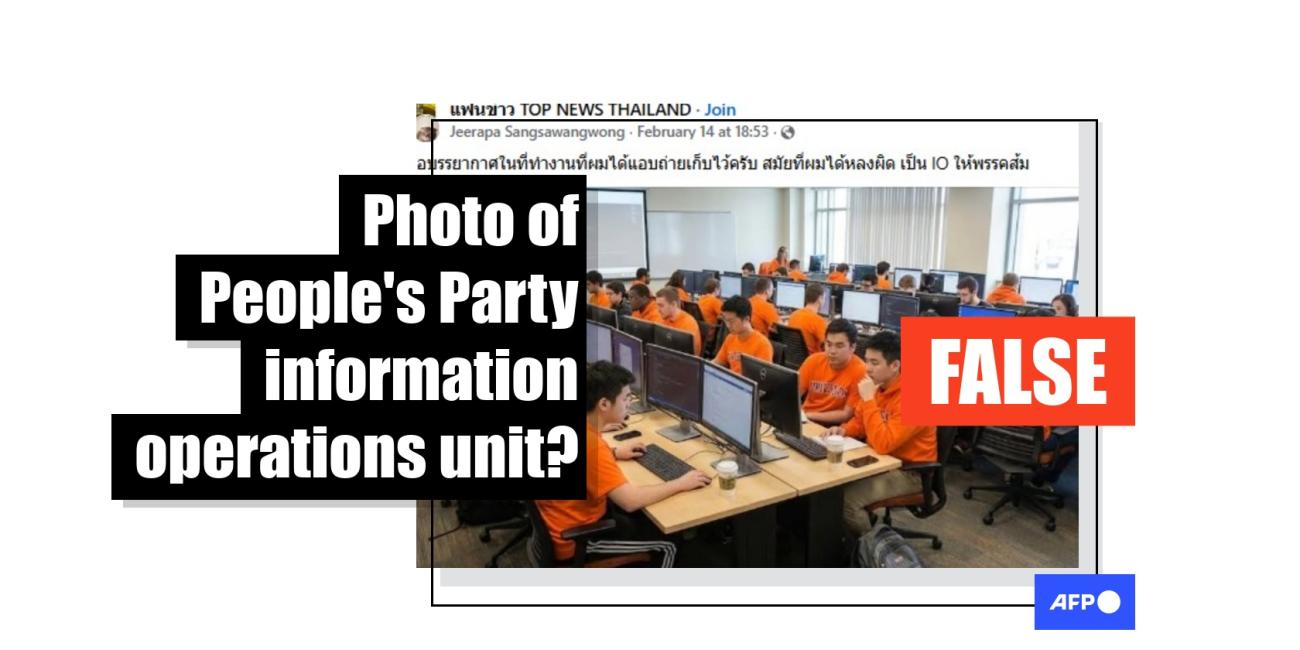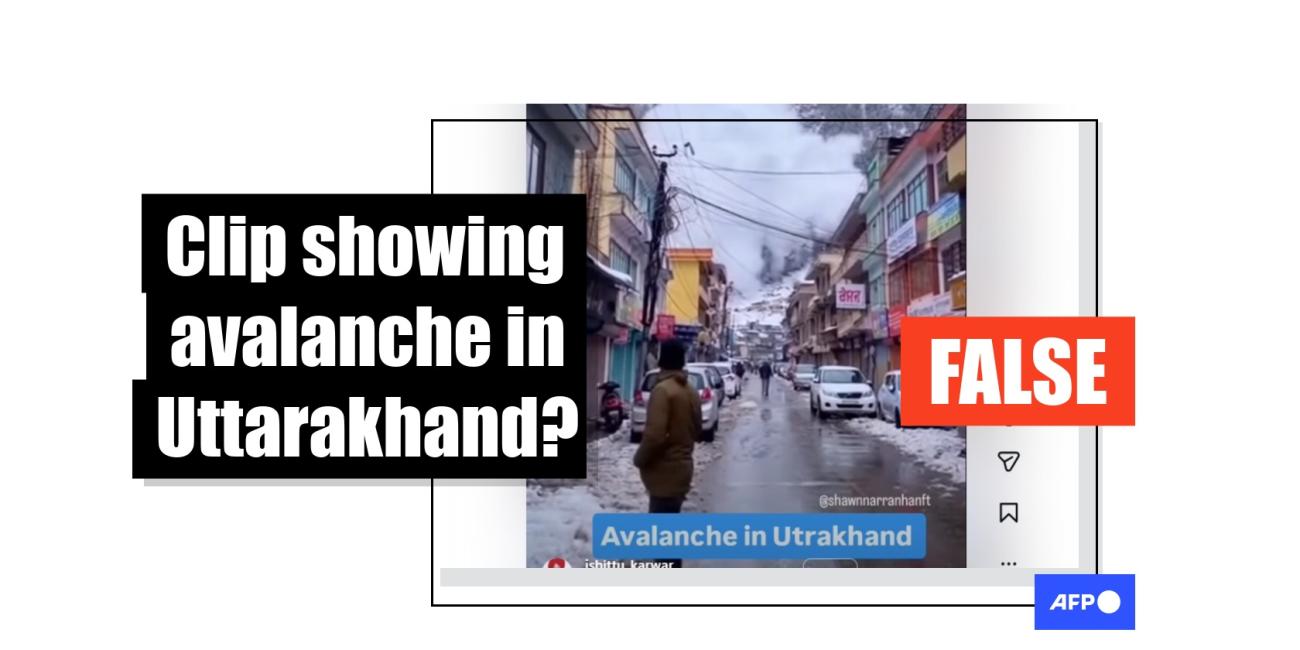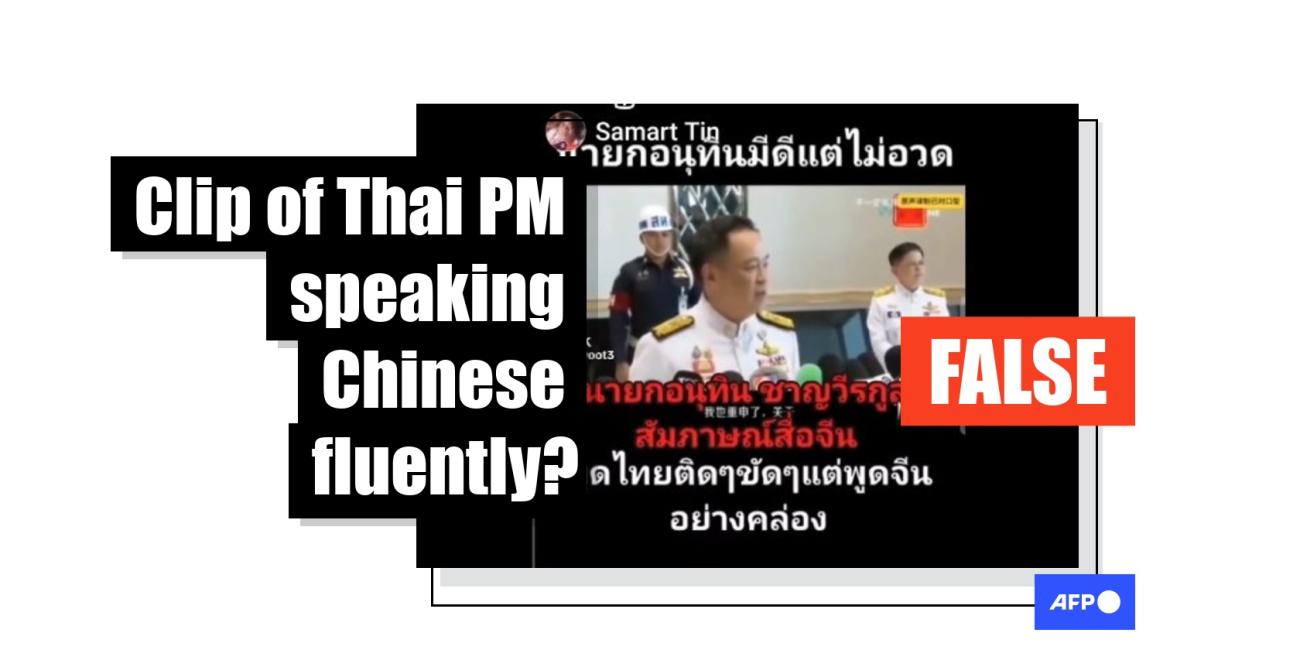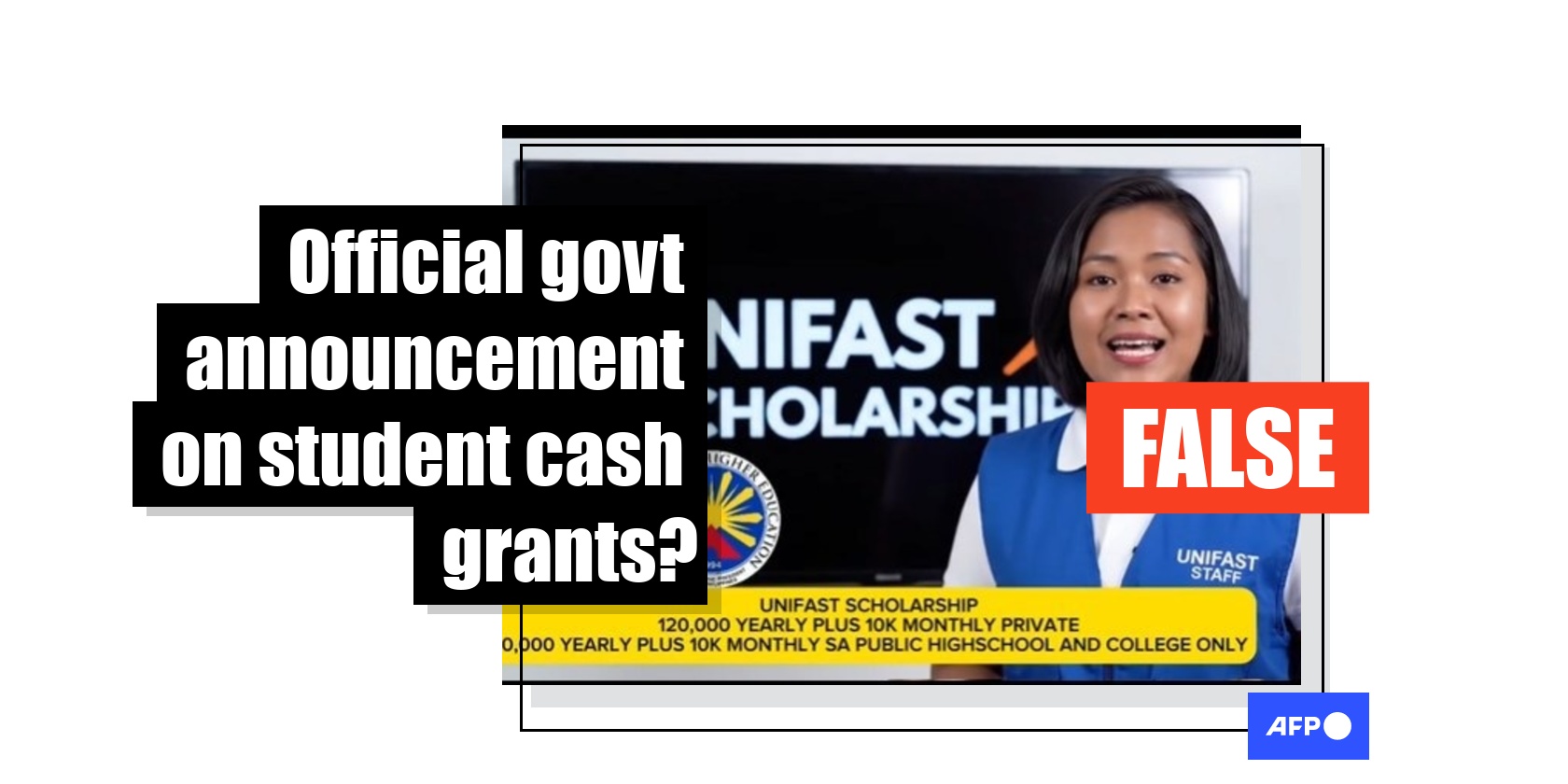
Philippine govt warns against hoax call for scholarship applications
- Published on August 22, 2025 at 09:37
- 3 min read
- By Jan Cuyco, AFP Philippines
"CHED scholarship / UniFAST scholarship application starts today / Apply now!" says the caption of a TikTok video viewed at least 2.3 million times since it was shared on August 15.
UniFAST was created in 2015 and offers scholarships and loans to Filipino college students (archived link).
The 16-second clip shows two purported UniFAST staff members urging parents to enter their children -- whether in high school or college -- into a government scholarship programme.
The purported subsidy grants 120,000 pesos ($2,106) to private school students each year, while public school students are offered 80,000 pesos ($1,404).
The video goes on to falsely claim students are given an additional 10,000 pesos ($175) each month.
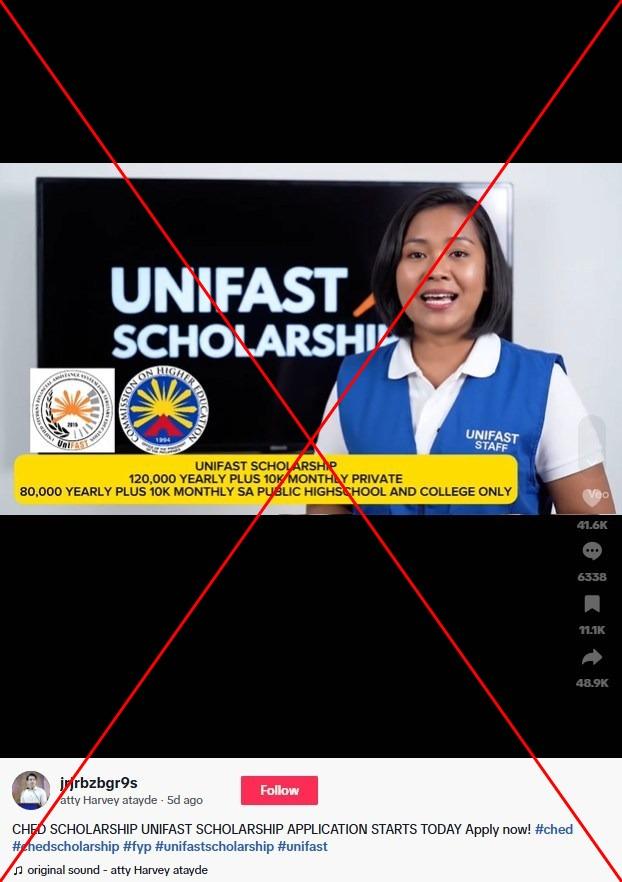
The uploader also urged users to sign up using a link in his profile, which leads to an unrelated blog asking for users' names and contact details.
The false video also spread on Facebook, TikTok and Instagram.
Some users appeared to believe the clip is a genuine call for application from the CHED.
"That's very good news. I hope underprivileged children could apply," one user said.
"I will try. Hoping I get in," another wrote.
But CHED has issued a warning on UniFAST's Facebook page, calling the circulating video misleading and that it "may be part of a scam" (archived link).
The post goes on to say that it has not published any announcements on its subsidy applications for the school year.
A closer look at the video also reveals a "Veo" watermark at the bottom-right corner -- referring to Google's video-generation platform, which lets users create eight-second clips (archived link).
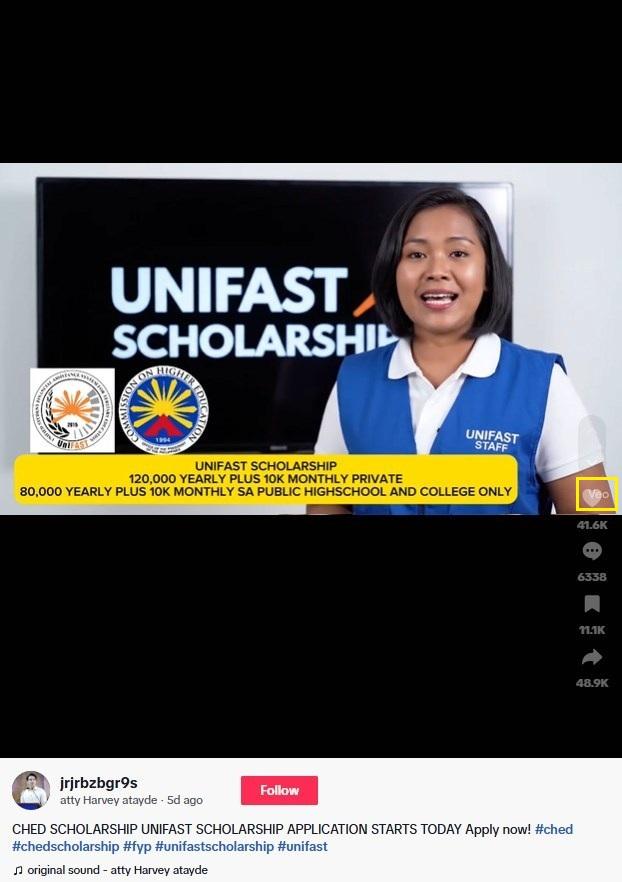
The video also misrepresents UniFAST, which only covers college students. Scholarships for high school learners should be overseen by the Department of Education, which manages the country’s basic education system (archived link).
UniFAST only grants subsidies ranging from 8,000 pesos ($140) to 27,000 pesos ($474) yearly -- which is lower than those in the false clip -- according to the programme's website (archived link).
The TikTok account that published the video has shared similar AI-generated visuals of supposed government announcements made with Veo.
While the user presents himself as a Filipino attorney named "Harvey Atayde", the name does not appear on the Supreme Court's official database of lawyers (archived link).
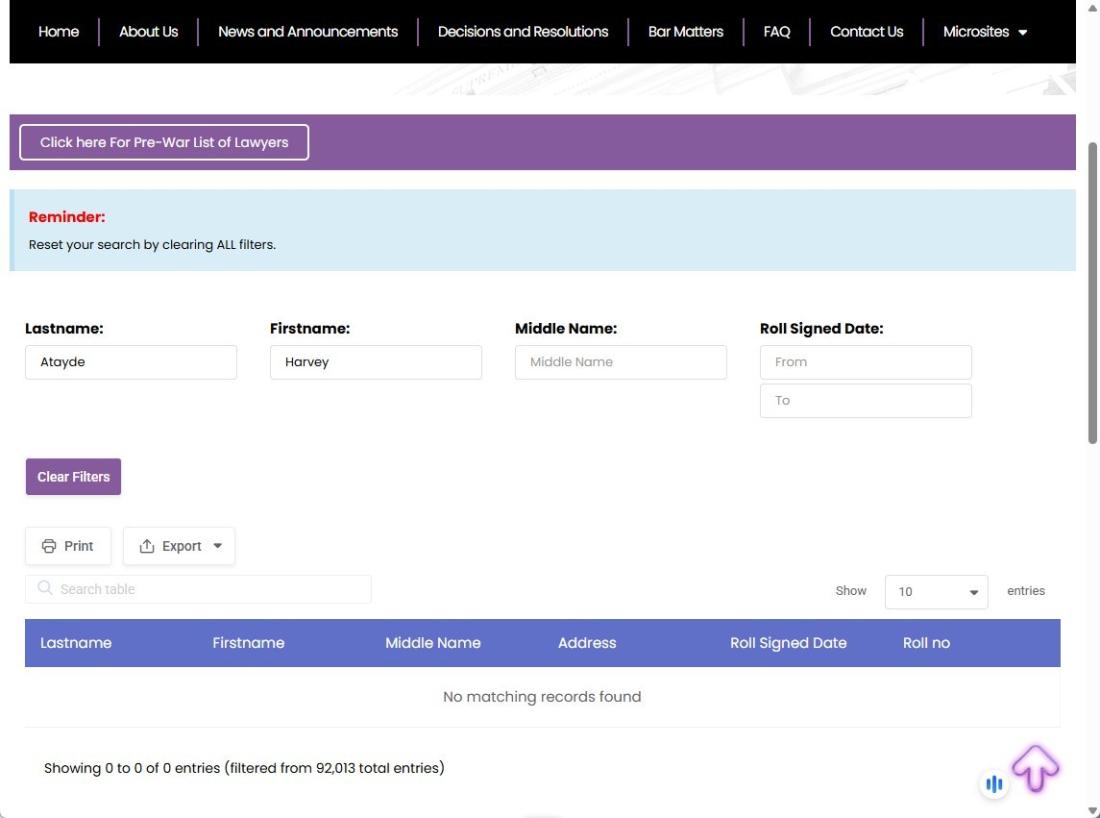
A Google reverse image search of the user's profile picture also found it altered a 2022 photo of Lucena City's mayor, Mark Alcala (archived link).

AFP has debunked other false government posts that asked for users' personal details here and here.
Copyright © AFP 2017-2026. Any commercial use of this content requires a subscription. Click here to find out more.
Is there content that you would like AFP to fact-check? Get in touch.
Contact us
